Mark Holmes, Alcohol Quit Guru, describes five coping strategies to manage problems after you quit drinking.
Good morning, and welcome to the Crazy Sobriety Vlog and today’s question is, how will I cope with my problems after I quit drinking?
You’re in a small plane, you’re on the runway, you check your controls, you start gradually moving down that runway, building up speed, and you’re off the ground.
The instructor is next to you, watching every move, you rise to 50 feet, 100 feet, 200 feet, and slowly ascend to 1000 feet.
I checked the way [view] because we’re going to do a turn, we’re going to do a 90 degree turn to start. A circuit is basically is forward, left, back, left again, and then down to the runway.
So you’re doing this circuit and she says, “you have control.” And I did a visibility check to see we’re clear, and when I looked down, I saw 1000 feet [to the ground].
And I was like, “Sh**!” It suddenly hit me I’m 1000 feet up!
Now, that’s not usually a problem if you’re in a plane, you shouldn’t really be that surprised if you’re in the sky, and you’re above the ground quite significantly, that would be a normal expectation of flying.
The reason I had a certain problem with it, and a bit of a shock, was because I was hungover. I was absolutely… I was still wasted because I’d been drinking so heavily the night before.
If you’ve got an emergency, something really bad happens, you usually would need all your faculties. Now if you were going to land a plane, I had the instructor there so I was like, “I’m alright” but when you’re flying solo, and you have a problem at height, it’s very dangerous.
Now it’s the same in life. If you’re flying solo in life, if you’re on your own, and you’ve got a really serious problem, then the last thing you want to do is have alcohol. The last thing you want to do because you’re going to crash.
We also talked about a number of skills in the book that will help, coping skills, I called “life’s toolkit”.
You couldn’t have told me anything when I was in my 20s, I think I knew everything. But I probably knew everything by the time I was 18. I was pretty sure I had it all worked out. So that’s not true. And then you get to your thirties and you go, “I definitely know everything. There’s nothing I don’t know. Look at me, I’m thirty, already an old man!” And then you get to your 40s. Same. Then you get to your 50s, well, I don’t know what that’s like. I just don’t know what that’s like. But I imagine it’s pretty much the same, right up to 60s and 70s. So what’s my point?
My point is there are skills and techniques you can use to help you solve problems. There’s always help. There’s always someone you can ask.
Sometimes a stranger is better. Sometimes that’s why counselling helps, but I know counselling is expensive. We offer it a very good rate of £600 GBP pounds for 12 weeks or $820 USD. See the details on my website, www.addictionhelp.agency for a Complete 12-week alcohol cessation course, that’s the end of the advertisement.
Asking for help is the best thing. I don’t know everything, who could help me? And there’s charities that are paid by donations to help you. And they get a kick out of it, some of these people, they really want to help, that’s their buzz in life, to help somebody. They’re really nice people.
- Try and get help. [Ask for help].
- Use Bibliotherapy. Get help from books. It’s proven that getting help from self-help books actually helps you! That’s proven in research, that research is not in my book, but it is true.
- Keep a journal. Use a journal to support you. It’s a conversation with yourself and you can reflect on what is happening in your life. And hopefully, that might give you solutions that you haven’t thought of before.
- If you can, get the book: “Holmes’s Complete Guide To Stop Drinking Alcohol; The Easy, Mindful and Pain-free Way“. If not, try keeping a journal. Track your drinking in your journal, and if you can, track when you want a drink, when you have an urge or craving, in your journal. This is all in the book. But if you haven’t got the book, for whatever reason, that’s a helpful thing to do.
- And last, I would advocate a Mindful Way of dealing with your problems. And that means to really face them full on, and be absolutely focused on what that problem is. You’re not hiding at all, and being mindful about it is embracing it in a loving and kind way, meditating.
The only time we’ve got is now.
And there’s nothing to worry about now if you can breathe. If you’re living, what is the problem?
Is it in the future, is it in the past? Well, forget that, what is now.
And for meditation, there’s tips and techniques in the book that will help you.
That’s it for today.
You will cope and you will cope better sober.
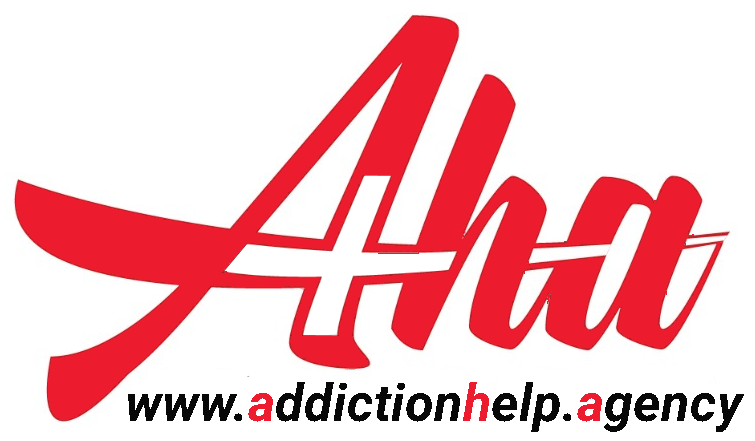
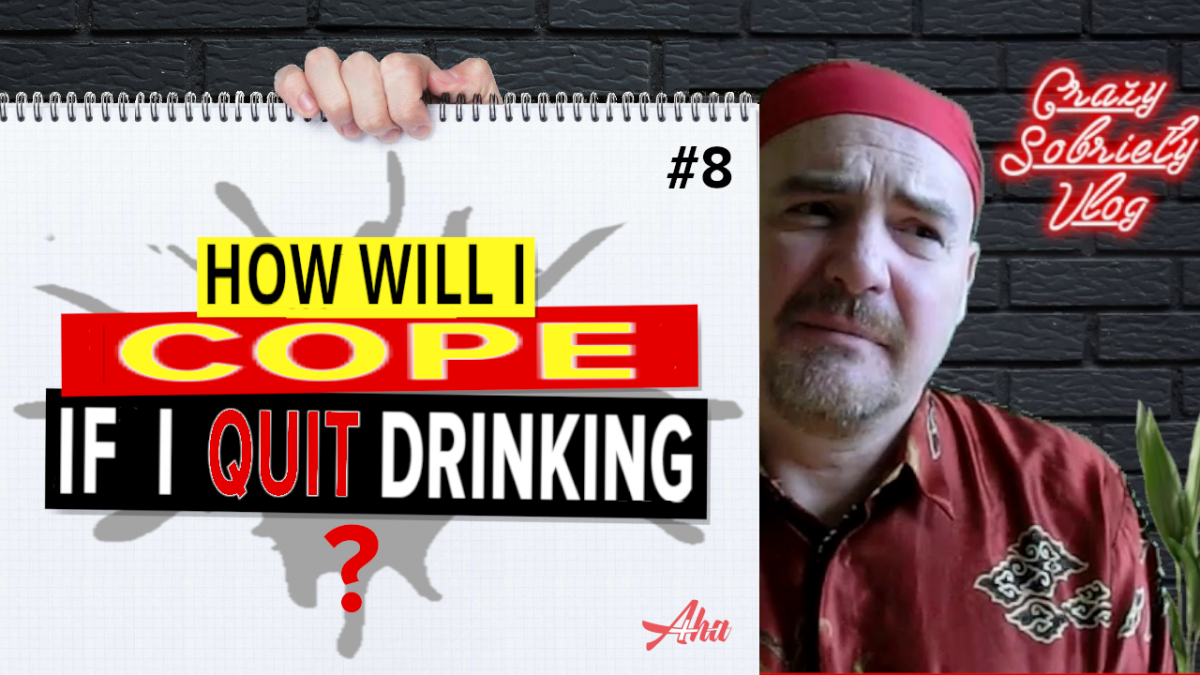
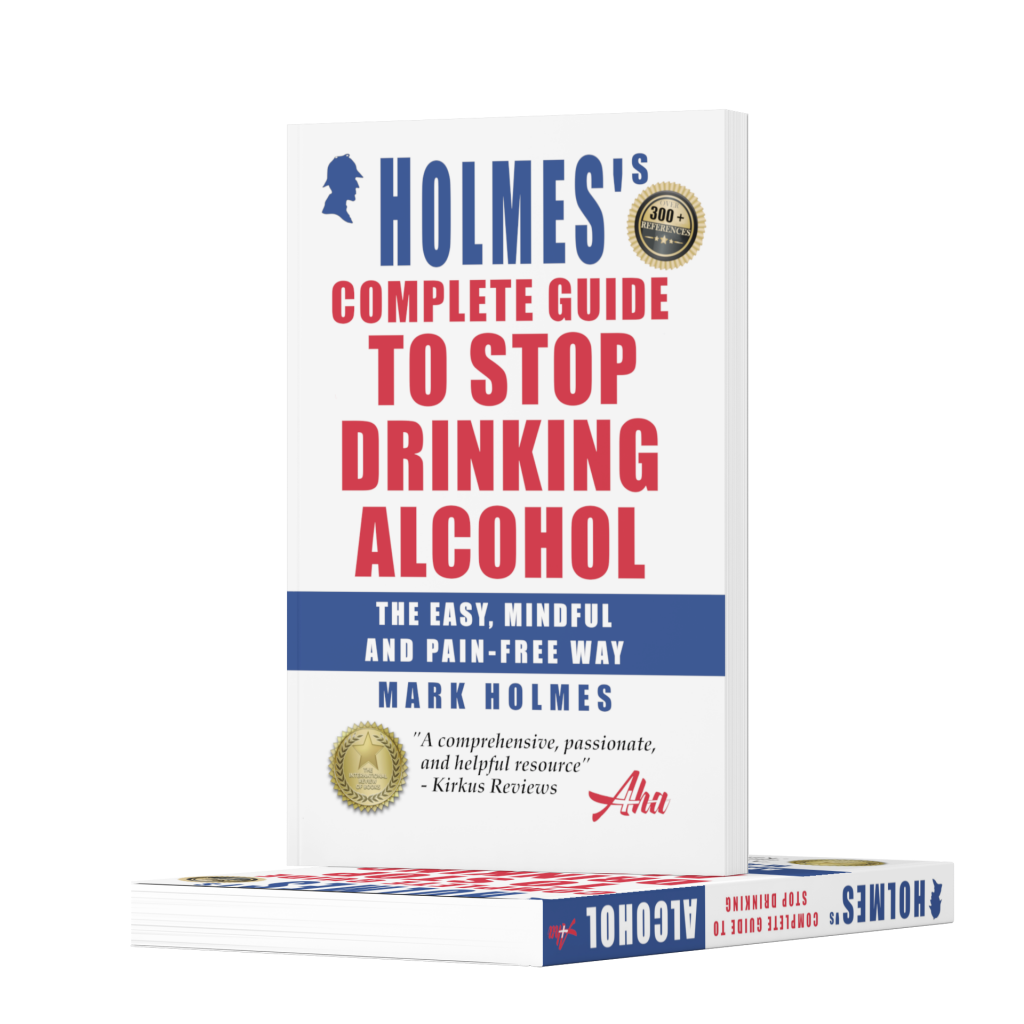
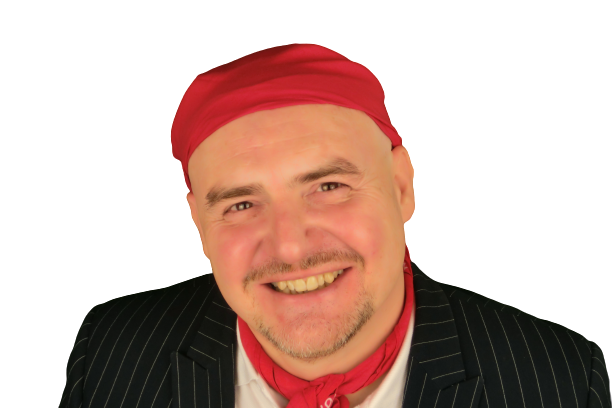
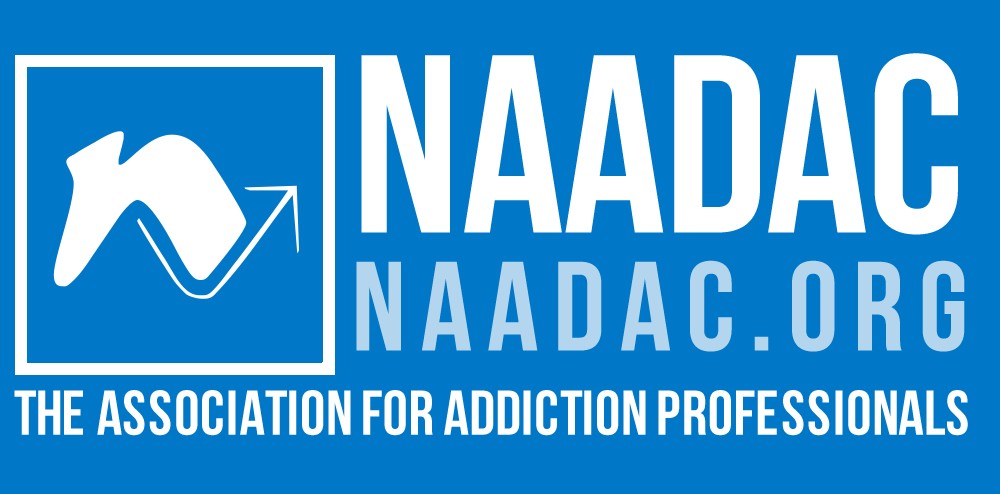
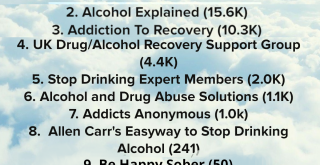
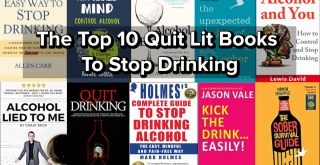
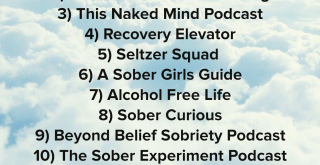
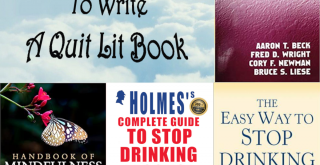
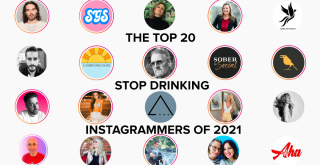
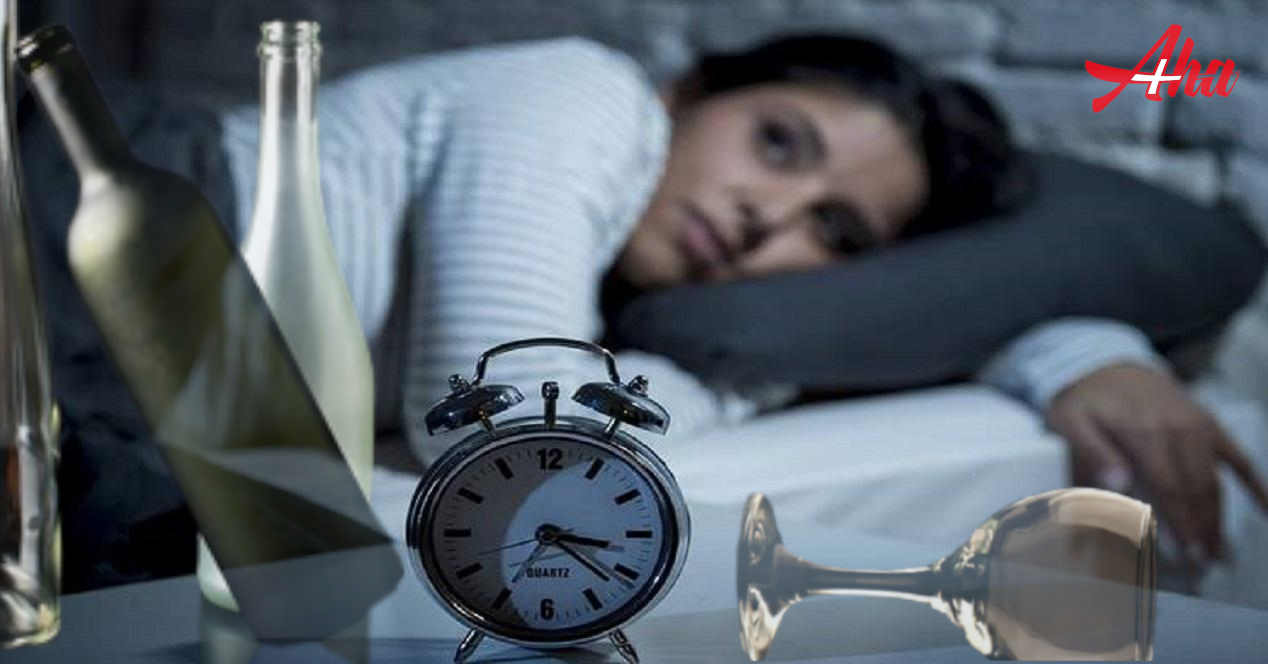
0 Comments